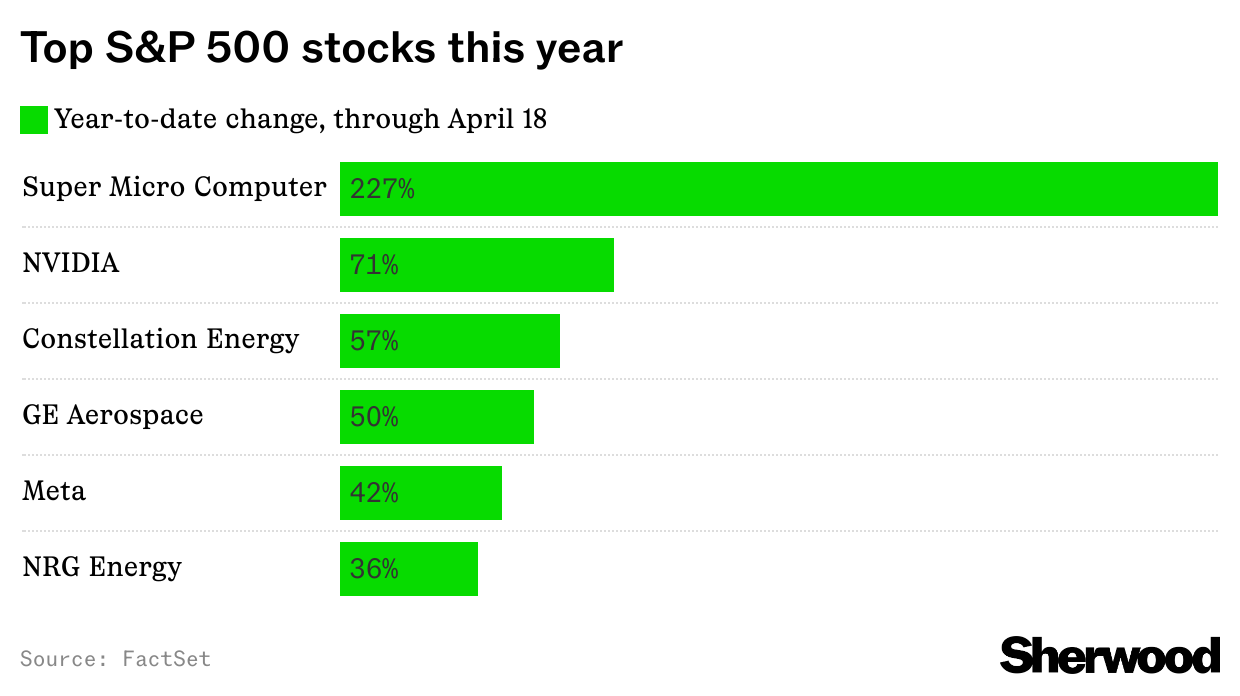Hey Snackers,
Another tragic mass shooting marked this July Fourth: On Monday, a shooting at a parade in Highland Park, Illinois took the lives of six people and wounded more than two dozen. In the first half of this year, there have been an average of 11 mass shootings every week in the US. Our thoughts are with the victims’ loved ones, and everyone who has been impacted by gun violence.
In market news, stocks fell for the week. The S&P 500 lost 2.2%, after closing out its worst first half of the year since 1970. Consumer spending fell for the first time this year as inflation fatigue kicked in.
Policy
Privacy and moderation: After the Roe reversal, tech companies are grappling with how to handle abortion-related data and posts on their platforms
Big Tech in the spotlight... Since the US Supreme Court overturned Roe v. Wade, a giant question mark looms over how tech companies will handle users’ abortion-related data and content on their platforms. (FYI: Nearly half of US states are expected to ban or limit abortion — and 13 already have.)
- On the privacy side: People worry that authorities could subpoena data in states where abortion is outlawed, and use it as evidence in criminal cases.
- On the moderation side: Some worry that platforms that ban posts promoting illegal activities (think: illicit drugs, violence) could also remove content promoting abortion access.
- On the record: Meta, Twitter, TikTok, and Reddit have been mostly silent over how they’ll handle abortion-related data and posts. On Friday, Google said it would delete user location history for abortion-clinic visits.
Sensitive info... Each year, tech companies receive thousands of requests for user data from local, state, and federal law enforcement — and they typically comply with the vast majority of requests. Meanwhile, most big tech companies have policies outlining how they moderate illegal content.
- Data: Officials in abortion cases could request info on everything from Facebook messages to Google location data to ovulation-kit purchases on Amazon. Period-tracking apps are already scrambling to anonymize user data over concerns it could be used in criminal cases.
- Content: Section 230 of the Communications Decency Act protects tech companies from being held legally liable for content posted on their platforms. Still, they often remove content that violates their policies. Abortion could fall under policies banning illegal or violent content.
This could be tech's greatest social challenge... Tech behemoths have been vocal about supporting abortion access for their employees, with companies like Microsoft, Apple, Salesforce, and Uber saying they will (or already do) cover employee travel expenses for abortions. But it's unclear how these companies will handle the subject of abortion access when it comes to users — especially since they may have to comply with state laws. Last week President Biden said the US would protect women seeking abortions across state lines — but much hangs in the balance.
Zoom Out
Stories we’re watching...
Pill panic… Lots of people want Plan B. After SCOTUS struck down the federal right to abortion two weeks ago, many people stockpiled morning-after contraception pills like Plan B, fearing further limits to reproductive care. CVS, Rite Aid, Walmart, and Amazon even temporarily limited pill sales per person to prevent shortages. Generic morning-after pills are available online, but Plan B dominates the market thanks to exclusive deals with Target and Walmart. Plan B costs $50/pill, and the private-equity firms that own the drug earn profit margins as high as 85%.
Birkins on the blockchain… While the crypto crash continues, designer labels are using blockchain tech to combat the counterfeit biz — which lost them $98B worth of sales in 2017 alone. Last year, LVMH and Prada launched Aura, the first luxury-focused blockchain that creates digi-certificates for millions of items to ensure authenticity. Now the trackable tech is expanding beyond fashion: Mercedes-Benz and Hennessy joined the club this year. But the tech isn’t foolproof (and requires a good relationship with suppliers), so mainstream-ification could take a while.
Events
Coming up this week...
Waiting for the report card… All eyes are on the June jobs report, which drops Friday. In May we saw a fork emerge in the labor market as leisure, hospitality, and travel companies couldn’t hire fast enough, while tech companies downsized. On the plus side: nearly 95% of jobs lost to the pandemic have been filled, and unemployment’s low. Not-so-plus side: now that spending’s cooling and recession fears are heating up, job cuts are spreading beyond tech. Last week pharma giant Novartis and JPMorgan announced layoffs, with more cuts expected on Wall Street.
The economy’s gettin’ creaky… but business is runnin’ smoothly at WD-40. Sales of WD’s signature use-it-for-just-about-anything lubricating spray soared last year as people tackled DIY home projects. Then WD used its pandemic profits to grease its global wheels: sales and profits jumped last quarter despite dwindling home-improvement projects thanks to rising sales abroad. The lube legend still expects earnings to rise this year, despite sky-high prices for oil (a main WD-40 ingredient). We’ll see how smoothly things are running when WD reports Thursday.
ICYMI
Last week's highlights...
- Ruled: As nearly half of US states move to restrict or ban abortion, big corporations are stepping in to offer employees financial support. Some are trying to be the “fourth branch” of government — but it may not pan out.
- Coaled: SCOTUS also struck down an EPA plan to require power plants to cut emissions — a blow to environmental regulators and a boost for coal companies. The precedent could usher in an era of deregulation.
- Sky: Rare-whiskey collections are selling for ludicrous prices at airport duty-free stores (think: $816K). Designer bags, watches, and collectibles are also appreciating as the wealthy invest in nontraditional assets.
What else we’re Snackin’
- Hype: Mobile gaming’s “hypercasual” genre is winning with simple concepts, from ASMR bubble-popping to digital fridge-stocking. But to keep users tapping (and watching ads) developers are starting to add complexity.
- Unlike: Gen Z's embracing digital privacy and rejecting social media's "presentation culture." Discord and Tumblr have reaped the gains of distancing themselves from Insta's "personal brand" ethos.
- Cash: Nearly one-third of the world’s global household wealth is held by Americans, and about three-fourths is held by the 10 richest countries. The top 1% of US households hold a third of the country’s household wealth.
This Week
- Tuesday: National Graham Cracker Day
- Wednesday: National Fried Chicken Day
- Thursday: Weekly jobless claims. Earnings expected from Levi Strauss, Helen of Troy, and WD-40
- Friday: Monthly employment data
Authors of this Snacks own: shares of Google, Apple, Microsoft, Uber, Walmart, Amazon, Twitter, and CVS
ID: 2272215
.png)

